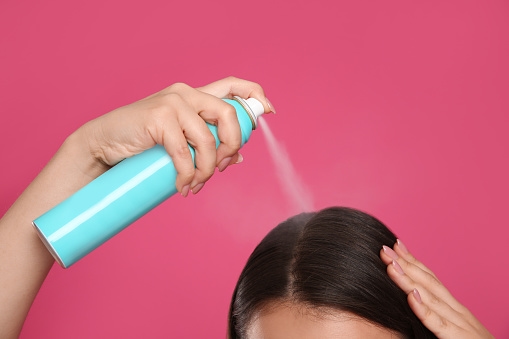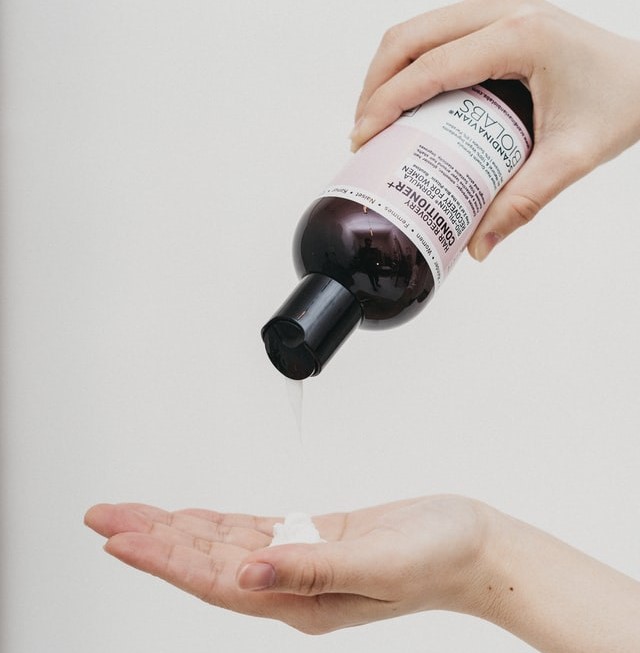Suffering from dandruff, scalp irritation, acne, and psoriasis on your scalp? Try salicylic acid for hair. Salicylic acid is a component of many excellent shampoos since it is helpful for a variety of skin and scalp issues, including dandruff, psoriasis, and acne on or near the scalp. Choosing the finest salicylic acid shampoo for you is more about the formula (i.e., the other ingredients in the shampoo), the pricing, and even the aroma as long as it contains salicylic acid (or lack thereof).
The most often used active ingredient in dandruff shampoos on the market right now is salicylic acid for hair. Unbelievably, 24 percent of the shampoos we’ve tested include the component (almost one in four. And the explanations are sound and highly adaptable. Salicylic acid for hair breaks down dead skin cells in shampoo to work. Scientific research has shown that this can aid in the treatment of psoriasis and seborrheic dermatitis, two disorders that affect the scalp. There isn’t enough proof to support the shampoo’s other claims.
Table of Contents
What are the benefits of salicylic acid for hair?
1. Improves dandruff management

By reducing cell-to-cell adhesion, salicylic acid for hair eliminates scaly, hyperkeratotic skin effectively. The prevalence of Malassezia, a form of fungus, is the root cause of this itch and flaky scalp problem. Frequently, salicylic acid shampoos are used to treat dandruff. The flakes are dissolved, making them simple to wash off. Soreness and itching are reduced.
2. Minimizes scalp irritation and itching
Excessive buildup of dead skin cells on the scalp can exacerbate uncomfortable, itchy hair. That dry, itchy skin is made easier to remove in the shower thanks to salicylic acid. Salicylic acid for hair is really good to minimize scalp conditions such as it forstalls scalp irritation as well as itchiness too. It also helps to reduce the frequent hair fall with its beneficial properties.
3. Soothes seborrheic dermatitis
On the body, seborrheic dermatitis, sometimes known as dandruff when it affects the scalp, is characterized by flaky, itch-prone skin, and greasy skin patches. By eliminating the flaky skin and skin patches, salicylic acid aids in the management of the condition. The medical term for having an oily, flaky scalp is seborrheic dermatitis, and salicylic acid is highly successful at treating it. Salicylic acid for hair appears to completely resolve the problem by removing oil accumulation and dissolving scaly, dead skin.
4. Eliminates oil and product buildup
Many of us are guilty of using excessive amounts of dry shampoo to prolong a fantastic hairstyle by one extra day. Fortunately, salicylic acid for hair naturally removes the epidermis’ outermost layer, allowing oil, dead skin, and product buildup to wash off without any trouble.
5. Scalp Psoriasis
The scalp can be affected by the chronic inflammatory disorder psoriasis sometimes. It results in itchiness, scaliness, and red spots on the skin due to an overabundance of cell turnover. By controlling the psoriatic plaques, salicylic acid for hair can reduce itching. Shampoos containing salicylic acid for hair can help you manage flare-ups if you have scalp psoriasis. Salicylic acid does not, however, cure psoriasis. To reduce it, you must use medicinal items and take prescription medications.
Can Salicylic Acid Combat Hair Loss?

No. Hair loss is not treated with salicylic acid for hair. However, it can aid in managing and minimizing the number of problems that affect the health of your scalp. This could lessen itching, your desire to scratch your scalp, and the likelihood of hair loss.
How to use salicylic acid shampoo for hair?
Salicylic acid for hair as shampoos only works if you use it properly, just like with any prescription. For proper usage, adhere to the following steps:
- Using water that is lukewarm or at room temperature, soak your hair.
- Use a shampoo containing salicylic acid for hair to massage your scalp and hair. Depending on the length of your hair, adjust the shampoo amount.
- Use your fingers to gently massage and cleanse your scalp. Avoid scratching your scalp, especially if it has any conditions. Rub the length of the hair.
- Use water that is at room temperature to thoroughly rinse your hair and scalp.
- Only the lowest two-thirds of the hair should receive conditioner. After a few minutes, rinse it off.
The salicylic acid shampoo works best when applied once a week. A dermatologist could advise using shampoo every day until your issue gets better. You’ll probably need to use the salicylic acid for hair as a shampoo once or twice a week for maintenance even if your scalp clears up.
Considerations While Using Salicylic Acid Shampoos

- Overuse of salicylic acid shampoos can aggravate existing skin irritation and lead to dryness and itching. Follow the directions on the shampoo package or speak with your doctor about the recommended frequency.
- Before using salicylic acid for hair as shampoos, talk to your doctor, especially if you’re getting treatment for a scalp condition.
- Ask your doctor if you want to use salicylic acid shampoos if you are breastfeeding or planning a pregnancy.
- To prevent significant skin problems, look for any allergic responses.
- Use caution while applying a salicylic acid shampoo to damaged, inflamed, or weak skin. Useless on any open wounds or cuts.
- Never apply it to youngsters. Before applying a salicylic acid shampoo to a child’s scalp, seek medical advice.
- Avoid using SA shampoos and any other hair care products at the same time. This might itch your scalp.
- Verify the shampoo’s salicylic acid content. Identify the concentration that might be effective for your scalp issue (if any). For the recommended concentration, speak with your doctor.
Does salicylic acid open hair follicles?
Salicylic acid for hair may enter pores and clear them, unlike most shampoo chemicals, which help to prevent oil accumulation and unclog hair follicles. This may result in stronger hair growth and fewer skin conditions like dandruff or seborrheic dermatitis.
Surprising Benefits Of Hyaluronic Acid On Skin!
Everything You Need To Know About Salicylic Acid
10 Best Hair Sunscreen for You
3 Benefits Of Apple Cider Vinegar and Honey
